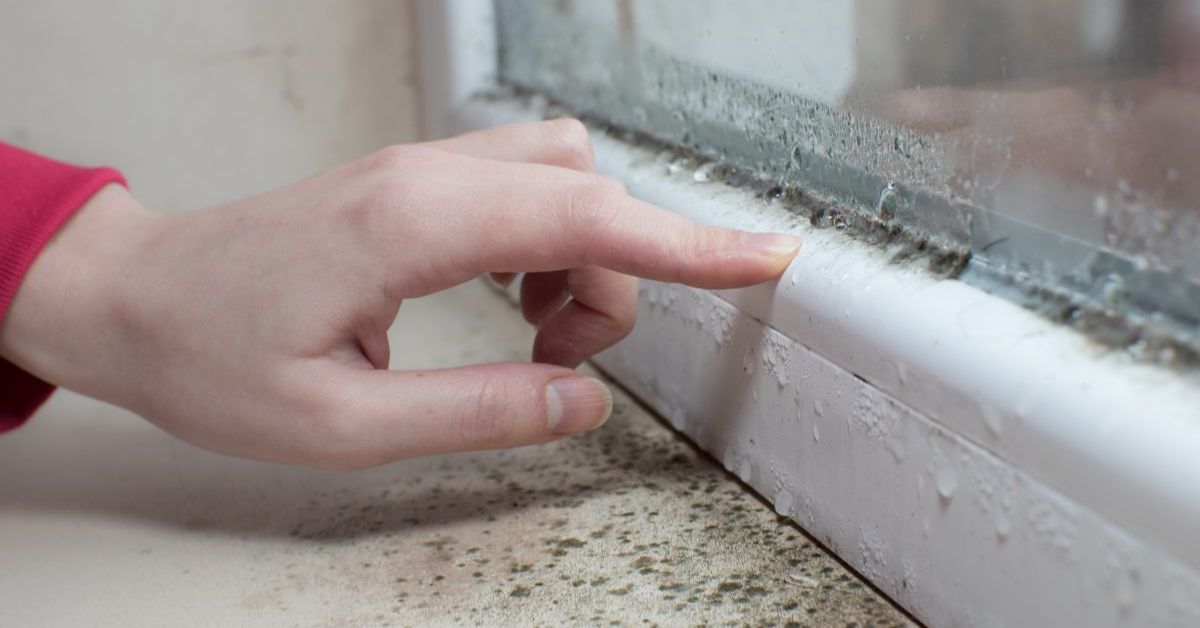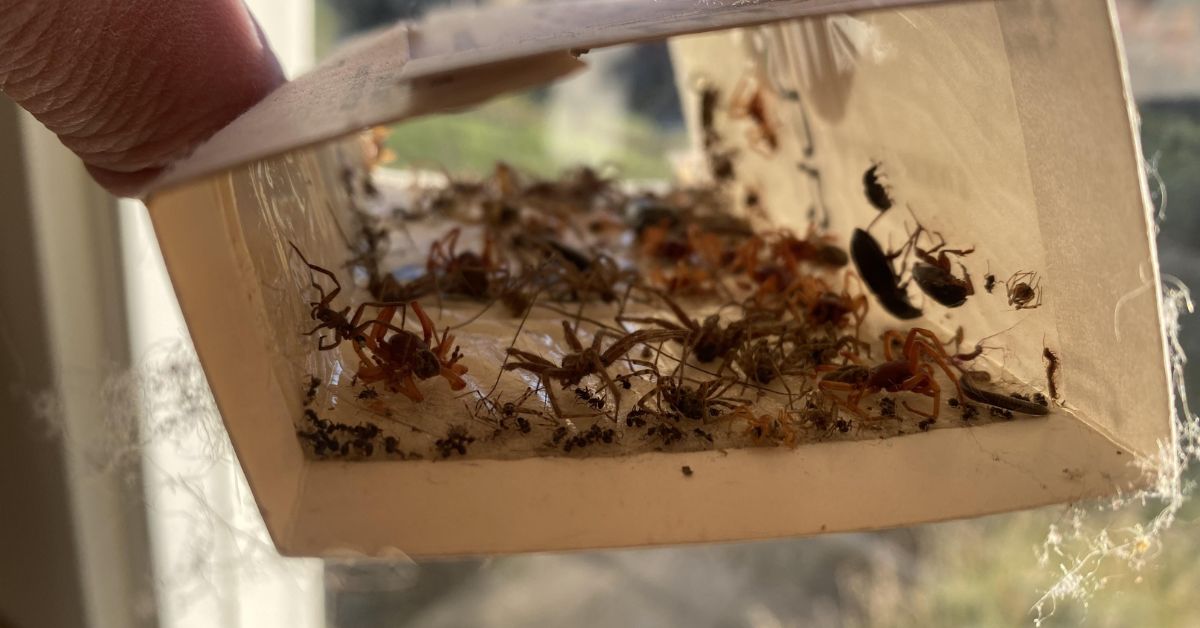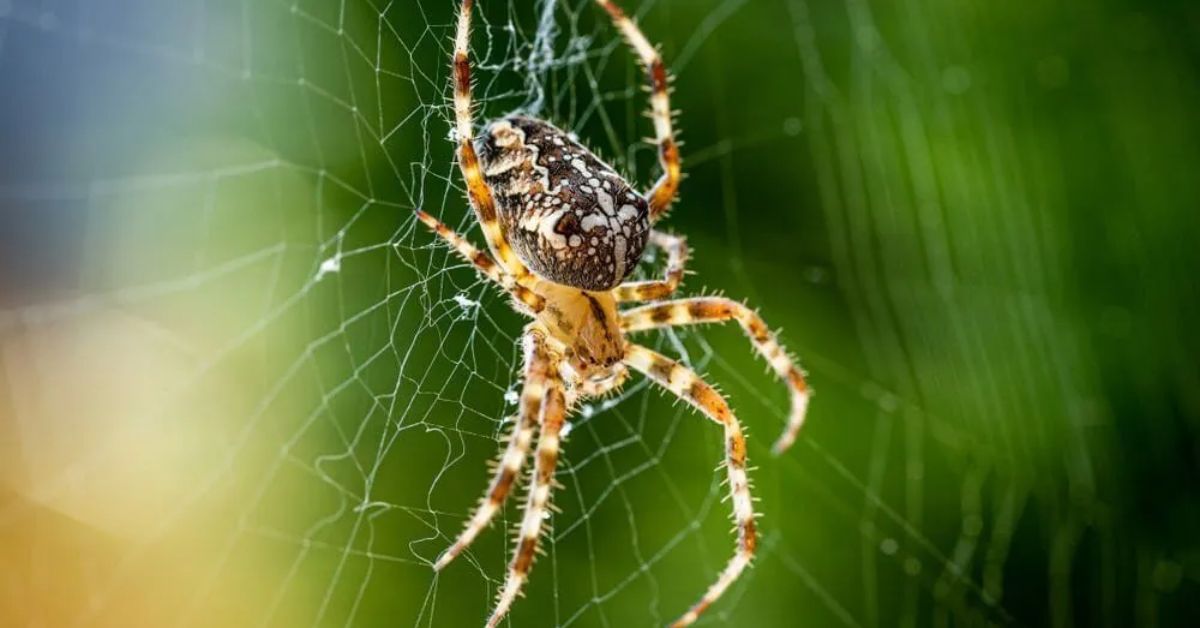10 Home Improvement Tips to Keep Your Space Spider-Free
If you’ve ever walked into your living room and spotted a spider hanging out in the corner, you know the feeling. It’s not just about the creepy crawly; it’s the realization that your space might not be as secure or clean as you’d hoped. The thought of these eight-legged intruders making themselves comfortable in your home can be unsettling—especially if you’re dealing with a full-on infestation.
But don’t worry, you’re not alone in this. Keeping your home spider-free is more achievable than you think. By following a few simple tips and being proactive about cleaning and maintenance, you can reduce the chances of spiders settling in. I’ve gathered 10 straightforward methods to help you tackle the problem once and for all. Whether you’re after natural solutions or more practical steps, you’ll find something that fits your needs.
Let’s dive into the first tip and get your home back to being the spider-free haven it should be.
Why It’s Important to Keep Your Home Spider-Free
Let’s be honest—spiders are the last thing anyone wants to find lurking in their home. But beyond just being creepy, they can pose several risks to your well-being, both physically and mentally. Here’s why it matters to keep them at bay:
Health Concerns: While not all spiders are dangerous, some can carry allergens that affect your health. For instance, certain spider species can trigger allergic reactions due to their venom or the proteins found in their webs. If you suffer from respiratory issues, these allergens can make things worse. In rare cases, a bite from a venomous spider can lead to serious health problems, although this is usually preventable with the right precautions. So, keeping spiders out is essential for maintaining a healthy environment.
Psychological Discomfort: For many people, the sight of a spider isn’t just unpleasant—it can trigger severe anxiety or even full-on arachnophobia. This fear can make you avoid certain areas of your home, disrupting your daily life. Imagine being in your living room, but constantly on edge, checking corners for any signs of movement. It’s exhausting, and nobody should have to live like that. A spider-free home gives you peace of mind, letting you relax without constantly checking the shadows.
Potential Damage to Your Home: Spiders, as much as we don’t want them around, can cause damage to your home in ways we often overlook. Their webs can accumulate in corners and along window sills, making your home feel neglected and dirty. And let’s not forget the creepy factor—seeing webs in your living room or bedroom isn’t exactly the sign of a well-kept space. Keeping spiders out means less mess and fewer unwanted visitors, improving the overall appearance and cleanliness of your home.
1. Declutter Your Home to Eliminate Spider Hiding Spots
Now, let’s get to the nitty-gritty: how do we actually stop spiders from setting up camp in our homes? The first step is simple but often overlooked—decluttering. Spiders love hiding in dark, undisturbed places, but these areas can also attract other pests like mice. If you’re dealing with more than just spiders, check out our article on 6 Sneaky Signs You Have Mice and How to Stop Them Fast for tips on keeping your home mouse-free as well. Here’s how to tackle this problem:
- Focus on Common Spider Hiding Spots: Start with places where clutter tends to accumulate, like attics, basements, and closets. These spaces are prime real estate for spiders because they’re dark, quiet, and often undisturbed. If your basement or attic is a catch-all for unused items, it might be time to organize. Look under furniture and inside forgotten corners—these spots often host spiders and their webs.
- Get to the Hard-to-Reach Areas: You’ll also want to clear out areas behind bookshelves, furniture, and appliances. Spiders can sneak into these spots, spin webs, and multiply without you even noticing. Once you clear out these spaces, you can vacuum or wipe down the areas to make sure no spiders are left behind.
- Maintain a Regular Cleaning Schedule: Decluttering is important, but you’ll also need to maintain it. A weekly cleaning schedule, focusing on hard-to-reach places, will help prevent spiders from returning. Regularly move furniture and clean behind it. Don’t forget to check window sills, corners, and areas where dust collects—spiders are experts at hiding in those spots.
- Visuals Can Help: A before-and-after image of a cleaned closet or attic could give you a visual sense of how much of a difference decluttering can make. Seeing the transformation can motivate you to tackle those spaces that have been gathering dust for months.
By keeping your home clutter-free, you’re not only making it less appealing to spiders but also improving its overall cleanliness and livability. You’ll be amazed at how much more comfortable your home feels when it’s organized and spider-free. If you’re unsure how to start the decluttering process, check out The Spruce for expert tips and advice on organizing your space efficiently.
2. Seal Entry Points to Prevent Spiders from Getting Inside

When it comes to preventing spiders from taking over your home, prevention is key. This means closing off any possible entry points. While spiders are pretty good at sneaking in unnoticed, you can take proactive steps to keep them out before they even make their way inside.
- Check for Gaps and Cracks: The first place to look is your windows, doors, vents, and pipes. These are common entry points for spiders seeking shelter inside. Even small gaps can become a highway for these eight-legged creatures to crawl through. Take the time to inspect these areas and identify any potential gaps.
- Weather Stripping or Sealants: One of the most effective ways to seal these gaps is by using weather stripping or sealants. These materials can be easily applied to doors and windows, effectively blocking any openings that spiders could slip through. Not only will this keep spiders out, but it’ll also improve your home’s energy efficiency.
- Screening Windows and Doors: Adding screens to your windows and doors is another simple, yet effective, step in keeping spiders from entering. Ensure that the screens are tightly fitted and don’t have any holes. This is especially useful for homes that prefer to keep windows open for fresh air without inviting unwanted visitors.
By sealing entry points effectively, you’re not just keeping spiders out but also preventing other insects, like wasps, from invading. To learn how to stop wasps from nesting near your home, be sure to check out 10 Warning Signs You’re at Risk of a Wasp Invasion and How to Prevent Wasps from Nesting.
3. Use Essential Oils to Naturally Repel Spiders
For those who want a natural and eco-friendly solution, essential oils can be a game-changer. Not only do they smell great, but they also work as effective spider repellents. The best part? They’re non-toxic, making them safe for pets and children.
- Essential Oils to Use: Some essential oils are particularly effective at keeping spiders away, including peppermint, eucalyptus, and citrus oils. The strong scents act as a deterrent, making your home less inviting for spiders. Peppermint oil, for example, is known to be especially potent at repelling spiders, and it’s a great option if you like a refreshing scent in your home.
- DIY Spider-Repellent Sprays: Making your own spider-repellent spray is simple and cost-effective. Combine a few drops of essential oil with water in a spray bottle, and shake it up! You can also add a bit of dish soap to help the oil blend with water. Focus on spraying this mixture around windowsills, doors, and other entry points where spiders are likely to sneak in.
- Diffusers and Sprays Around the Home: Place diffusers with essential oils in areas where you frequently see spiders, like corners, basements, and attics. You can also spray your DIY mixture along doorways and window frames to keep spiders at bay. Just make sure to refresh the spray every few days to keep the scent strong and effective.
By using essential oils, you’re creating a natural barrier against spiders without resorting to harsh chemicals. Plus, your home will smell wonderful! For more ideas and tips on making your own spider-repellent spray, check out BHG.
4. Clean Regularly to Remove Spider Webs and Eggs
If you want to stay ahead of spider infestations, regular cleaning is crucial. By keeping your home clean, especially in the areas where spiders like to hide, you’ll reduce the chances of them setting up shop in your space.
- Focus on Key Areas: Pay attention to corners, under furniture, and window sills—these are the prime real estate for spiders to build webs. Regularly wiping these areas will help eliminate any existing webs and prevent new ones from forming. The more consistent you are, the less likely you are to see those creepy webs showing up.
- Vacuuming Regularly: Vacuuming is one of the most effective ways to remove spider webs and eggs from your home. Spiders often lay their eggs in hidden spots, so it’s essential to clean these areas frequently. Use the crevice tool on your vacuum to get into corners and other hard-to-reach places where webs tend to form.
- Vacuuming Tips: When you’re vacuuming for spider webs, be careful not to spread spiders around. Empty the vacuum bag immediately after cleaning, and clean the vacuum itself to ensure you’re not inadvertently keeping spiders inside the vacuum’s compartments. This simple step helps contain any spiders you might have removed during your cleaning.
Cleaning regularly doesn’t just keep your home looking tidy—it also helps prevent the buildup of spider webs and eggs, which can lead to a larger infestation down the line. For more cleaning tips, check out Plunkett’s Pest Control.
5. Install Spider Traps in Strategic Locations

If you’re dealing with spiders already in your home, spider traps can be a simple yet effective solution to catch them without the use of toxic chemicals. These traps are especially useful if you’ve noticed a few spiders around and want to keep them from multiplying.
- Where to Place Traps: Spiders tend to move along walls or corners, so place your traps in high-traffic areas where spiders are likely to pass. Ideal spots include corners of rooms, along walls, and near entry points like doorways and windows. This ensures that you’ll catch any spiders coming in from the outside or moving around your home.
- How They Work: Most spider traps use a sticky surface that captures spiders when they walk across it. These traps are highly effective because they don’t rely on chemicals; they simply make use of the spider’s natural movement patterns. When a spider walks onto the trap, it gets stuck and can’t escape, allowing you to dispose of it safely without having to deal with harmful pesticides.
- The Benefits of Non-Toxic Solutions: One of the main advantages of using spider traps is that they are non-toxic and safe for homes with pets or children. Unlike chemical sprays, which can leave harmful residues, these traps provide a way to handle spider issues without exposing your family or pets to any risks.
6. Keep Outdoor Areas Well-Maintained to Prevent Spider Invasion
Preventing spiders from entering your home starts outside. By making your outdoor environment less appealing to them, you reduce the chances of them seeking shelter indoors. Here’s how you can make your home less inviting to spiders before they even cross your doorstep:
- Trim Back Trees, Shrubs, and Plants: Spiders love hiding in thick vegetation, so keep trees, shrubs, and plants trimmed back, especially around the perimeter of your home. This reduces the number of places where spiders can hide and makes it harder for them to enter through windows and doors.
- Keep Leaves and Debris Away from Windows and Doors: Fallen leaves, sticks, and debris can create natural hiding spots for spiders. Clean up any yard waste and regularly rake leaves away from areas like windowsills and doorways. This simple step ensures that spiders don’t have a place to hide right next to your entry points. Maintaining your outdoor space not only reduces spider hiding spots but also minimizes the presence of other pests like flies. If you’re interested in eco-friendly ways to control flies outdoors, check out our guide on 4 Genius Homemade Fly Traps That Actually Work and Are Easy to Make for some great DIY ideas.
- Reduce Outdoor Lighting: Did you know that the lights outside your home might be attracting insects, which in turn attract spiders? Spiders feed on insects, so reducing the brightness of your outdoor lights or using yellow-toned bulbs, which are less attractive to insects, can help deter spiders from being drawn to your home in the first place.
7. Use Chemical-Free Spider Repellents
For those who prefer to avoid chemicals in their homes, there are plenty of natural spider repellents that can help keep your home spider-free. Not only are they safer for your family and pets, but they’re also effective in repelling spiders without causing harm to the environment.
- Natural Products vs. Chemical-Based Repellents: While chemical-based repellents can work quickly, they often leave harmful residues or unpleasant odors. On the other hand, natural products like essential oils, vinegar, or citrus-based sprays offer a more eco-friendly solution. These natural alternatives tend to be safer for children and pets, providing peace of mind along with effective spider control.
- Recommended Natural Solutions: If you’re looking to create your own spider-repellent spray, mix peppermint oil, eucalyptus oil, or vinegar with water in a spray bottle. You can also place citrus peels or chestnuts near doorways and windowsills, as spiders dislike their scent. For those who prefer ready-made solutions, look for eco-friendly brands that offer safe, non-toxic sprays.
By choosing chemical-free repellents, you’re opting for a solution that is both effective and safer for your home environment. These methods are ideal for those looking to maintain a more natural, balanced ecosystem at home.
8. Introduce Natural Predators to Your Home
If you’re open to a more natural, balanced approach, consider inviting predators into your home that naturally control the spider population. This is a more hands-off way of dealing with spiders and can create a healthy ecosystem where nature keeps things in balance.
- Examples of Natural Predators: Introducing geckos, frogs, or certain species of birds into your home can help keep the spider population in check. These predators will naturally hunt down and eat spiders, offering a completely chemical-free solution to spider control. It’s a great way to embrace nature’s own pest control system.
- Pros and Cons of This Method: The main advantage of using natural predators is that they are completely harmless and part of the natural food chain. However, the downside is that not everyone is comfortable with bringing reptiles or amphibians into their living space. Additionally, you need to ensure that your home is safe for them, so they don’t end up as prey themselves.
- Keep It Pet-Friendly and Safe: If you have pets, it’s important to make sure that the predators you choose are safe for them. For example, geckos are generally harmless, but you’ll need to keep an eye on the interaction with other animals in your home to ensure everyone stays safe.
This approach might not be for everyone, but if you’re looking for a unique and eco-friendly solution, natural predators could be just what you need to keep your home spider-free.
9. Call Pest Control Services for Serious Infestations

Sometimes, despite your best efforts, spiders can still make their way into your home, especially if you’re dealing with a serious infestation. If DIY methods just aren’t cutting it, it may be time to call in the professionals. Professional pest control services can provide the expertise and resources needed to eliminate spiders from your home quickly and safely.
- When DIY Methods Fail: If you’ve tried everything from decluttering to using traps and repellents, but spiders continue to appear, it might be time to consult a professional. Sometimes, infestations go beyond what simple household methods can address, and professionals have the tools to deal with large-scale issues effectively.
- What to Expect from a Professional Service: A pest control service will start by thoroughly inspecting your home to identify the source of the infestation. They’ll look for entry points, spider nests, and high-risk areas. After the inspection, they will use safe and targeted treatments to eliminate spiders and seal any possible entryways. You can expect the team to be thorough, efficient, and knowledgeable about spider control. They may also offer advice on how to keep your home spider-free in the future.
While hiring pest control isn’t the most budget-friendly option, it’s often the quickest and most reliable way to regain control of your space.
10. Stay Consistent and Monitor Regularly for New Spiders
Creating a spider-free home isn’t a one-time task—it’s a continuous effort. Once you’ve successfully implemented strategies to remove spiders, staying on top of maintenance is crucial to ensuring your home remains spider-free.
- Prevention and Cleaning are Ongoing: Maintaining a spider-free home requires vigilance. Regular cleaning and ensuring entry points remain sealed should become part of your routine. It’s important to make this a consistent habit, so you don’t miss anything. Remember, spiders are persistent, and they’re always looking for ways to get inside.
- Monitor Entry Points and Traps: Don’t forget to regularly check around windows, doors, and other entry points. Be sure to monitor your spider traps and keep up with vacuuming and cleaning. This proactive approach ensures that any new spiders that try to sneak in will be dealt with right away. The more regularly you inspect and clean, the less likely you are to experience another infestation.
By staying consistent, you’re setting yourself up for long-term success in keeping your home spider-free.
Conclusion: Creating a Spider-Free Home for a Healthier, Safer Space
Keeping your home spider-free doesn’t have to be a constant battle. With the right strategies in place, you can create a safer, more comfortable living space for you and your family. Whether it’s sealing entry points, using natural repellents, or calling in pest control for serious infestations, each step plays an important role in keeping spiders at bay.
To quickly recap, remember the importance of decluttering, sealing entry points, using natural repellents like essential oils, and staying consistent with cleaning and monitoring. If all else fails, don’t hesitate to bring in professionals.
It’s time to take action and make your home spider-free. The methods outlined here can make a world of difference in improving the comfort and safety of your space. Whether you go the DIY route or call in the pros, don’t wait for another spider sighting to get started.
Have you tried any of these methods to get rid of spiders in your home? Share your experiences or ask any questions in the comments below. Need more home improvement tips? Visit Build Like New for more expert advice and solutions!
Disclaimer: The methods suggested in this article are for general informational purposes only. Results may vary depending on the severity of the infestation and the specific conditions of your home. For severe infestations or health-related concerns, it’s always best to consult with a professional pest control service.


